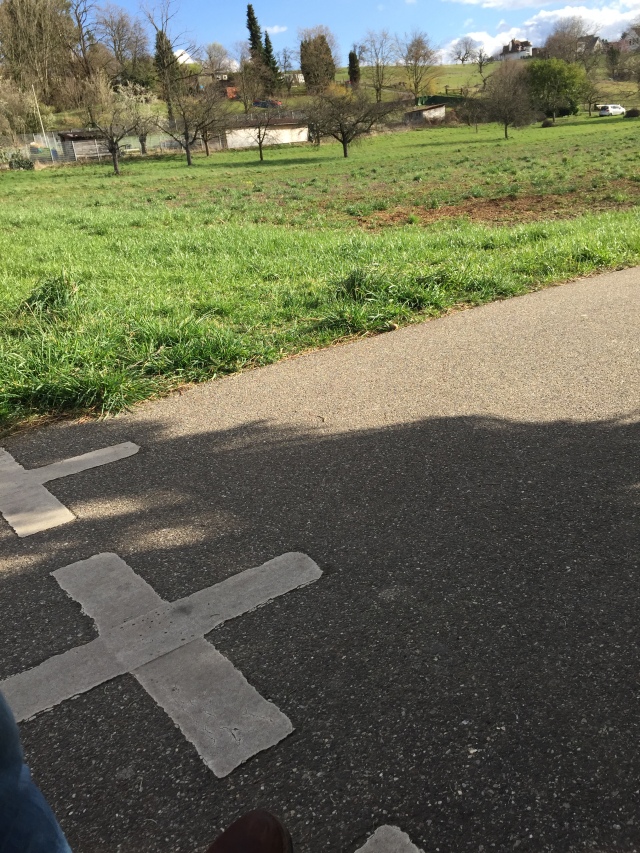
Scroll for English
Man nehme zwei kommunizierende Gefäße und nenne das eine “Deutschland”, das andere “Schweiz”. Oder “Frankreich”.
Die Gefäße enthalten eine homogene Flüssigkeit. Kleine Flocken schwirrlen in etwa gleicher Häufigkeit in ihnen. Nennen wir diese Flocken etwa “Kowidneunzehn” (den Namen habe ich frei erfunden).
Und jetzt sagt jemand: “Am besten machen wir die Verbindung zu. Nicht dass das eine Gefäß voller wird als das andere!”
Alle sehen das ein…
Zwischen den Dörfern Riehen in der Schweiz und Stetten in Deutschland gibt es ein Waldstück, einen Korridor schweizerischen Staatsgebietes tief ins deutsche, wo selbst im Zweiten Weltkrieg Leute in die Schweiz geflüchtet sind.
Ich kenne das Gebiet gut. Als deutscher Bürger mit schweizerischen Papieren kann ich diese Grenze auch legal überschreiten – kein Thema… Aber für einen Spaziergang, wenn ich Mathe- und Physikuntauglichkeit entfliehen will, eignet sich die Stelle gut.
Mal schauen, ob die Klausuren im April stattfinden können.
PS: Die Bundeskanzlerin ist bekanntlich promovierte Chemikerin und ehemals Forscherin der Akademie der Wissenschaften der DDR – fällt mir gerade ein… Wie konnte die Grenzschließung doch passieren? Wo die Leute doch sowieso zu Hause bleiben!


Enough with scrolling
Take two communicating vessels and name the one “Germany” and the other “Switzerland”. Or “France”.
Let the vessels contain a homogeneous fluid. There are tiny silvery flakes that whirl around in the vessels. Name them – sayyyy – “Covidnineteen” (strange name, huh?). The two vessels have the same amount of flakes per volume unit.
If you heard someone saying: “I propose the connection between the vessels to be closed in order to prevent the flakes here to be more than the flakes there”, how would you react? Moreover, how would you react if you realized that everyone around you hails the proposal?
Between the villages Riehen in Switzerland und Stetten in Germany, there is a forest in which a small corridor of Swiss territory “enters” like an appendix into Germany. In the Second World War there were people who managed to enter the corridor and arrive safely in Basel.
I know the spot quite well. Being a German citizen with a permit to work and live in Switzerland, I will not need to pass the border illegally. However, the spot is very convenient for a walk meant to escape for a few moments decisions irrespective of any understanding of maths or physics…
PS: Considering that the chancellor is a PhD in chemistry and a former fellow of the Academy of Sciences of the GDR, how could the borders closure possibly happen?





You must be logged in to post a comment.